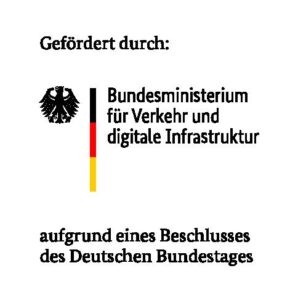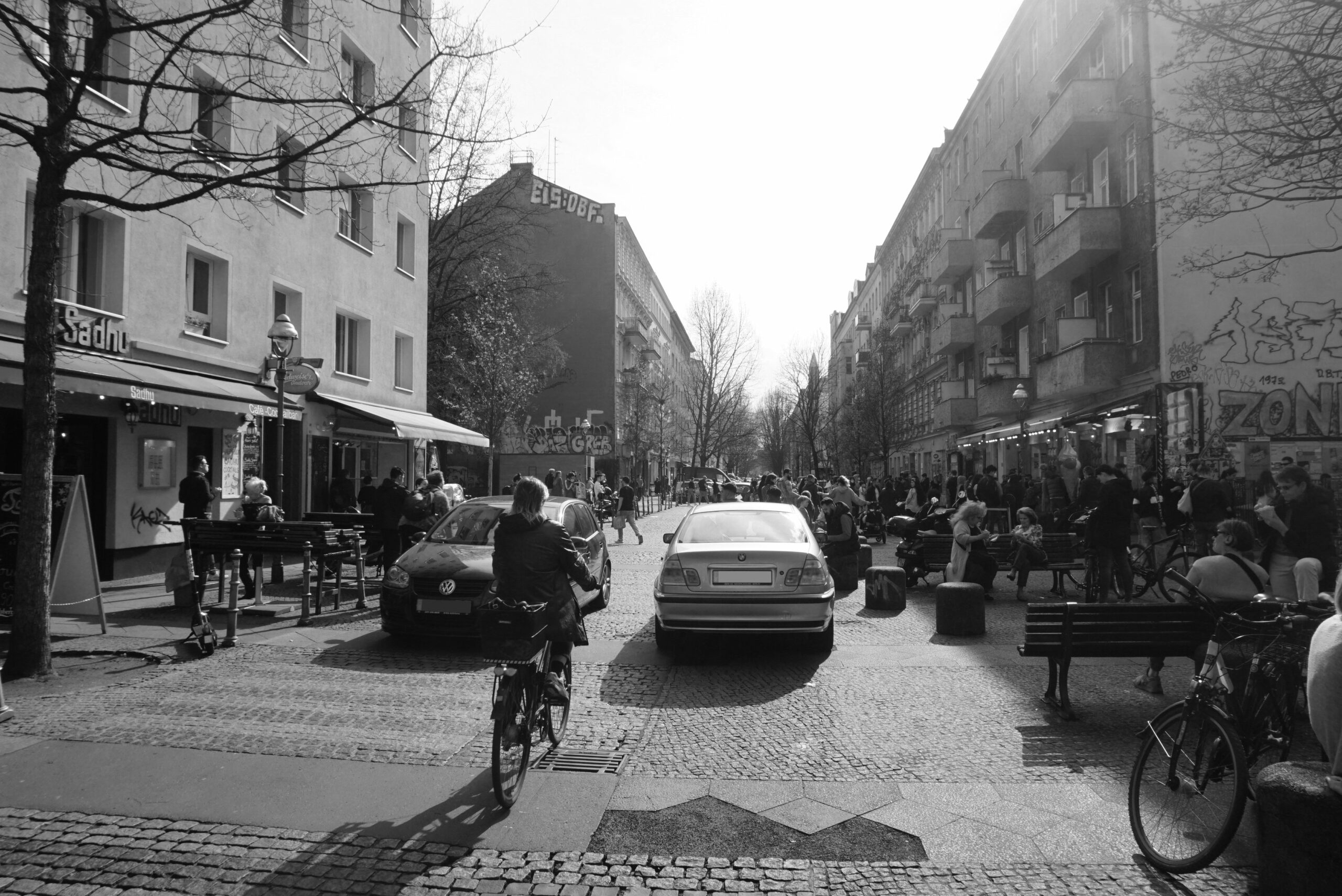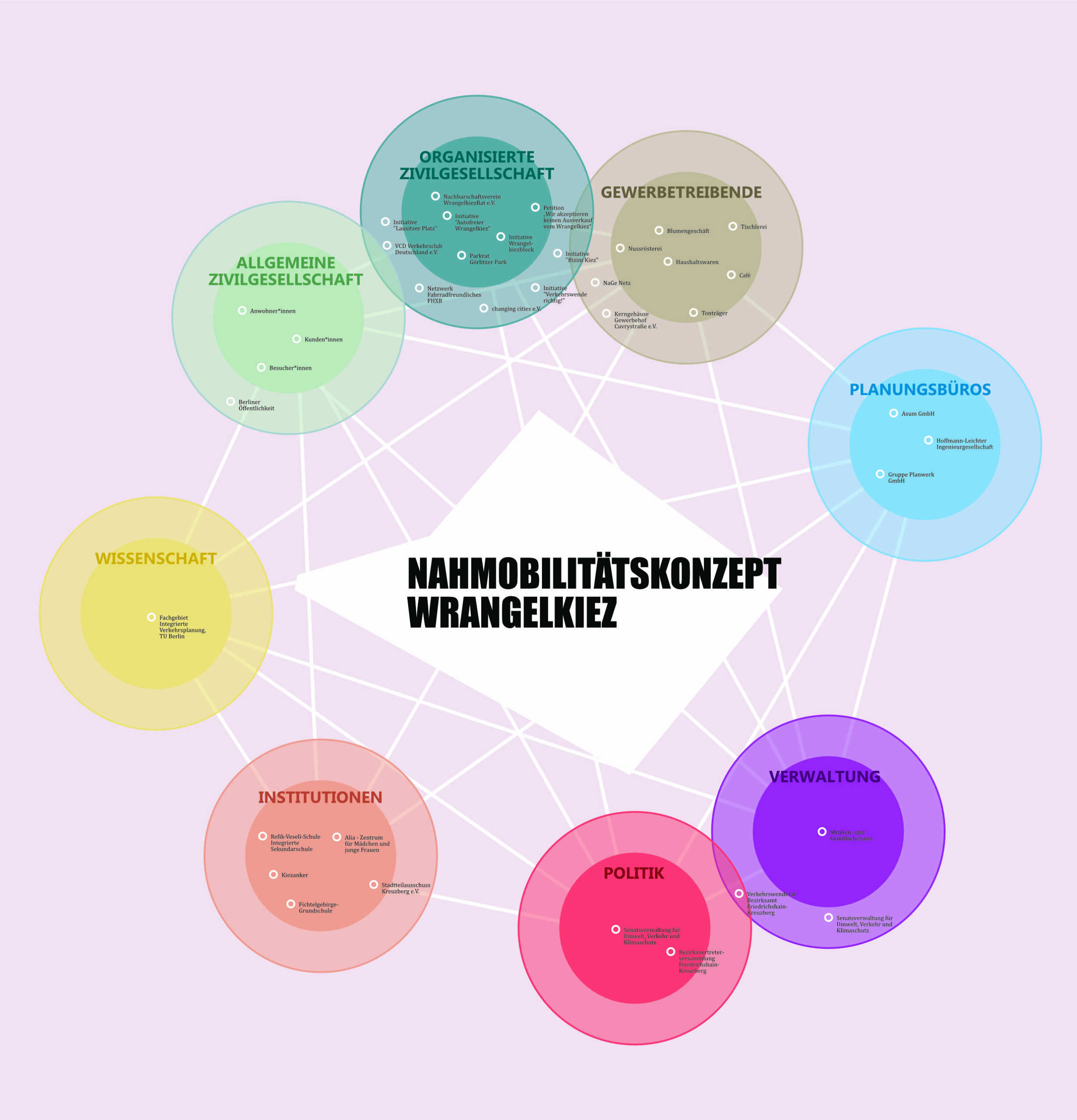Living Lab
Close mobility Wrangelkiez
Wrangelkiez in Berlin-Kreuzberg
The promotion of local mobility in the neighbourhood, in the sense of pedestrian- and bicycle-friendly design, is a key factor in making the city more liveable, healthier and more inclusive. However, the implementation of such projects is only hesitant. Using the example of the Wrangelkiez in Berlin-Kreuzberg, the various reasons for this delay are to be examined and solutions identified. At the centre of the project is the discussion with residents and their role in the realisation of transport turnaround projects. Practical examples show time and again that the existing opportunities to get involved in public planning processes are hardly used. Only when the traffic transformation measures are implemented does resistance arise among the population. This participation dilemma harbours the danger that transport transformation measures will be delayed or even fail. The role played by the acceptance of affected sections of the population and which other influences play a supporting role will be examined in the present case.
The project is dedicated to the question of how a process must be designed so that it enables social participation and thus promotes acceptance. The premise is pursued that opening up the decision-making and design process is the central element in counteracting the participation dilemma. The core thesis is that a dynamic and reflexive process design – also in the phase of implementing measures – significantly favours success.
A prerequisite for the selection of suitable methods is sound knowledge of the local population. A representative survey, in-depth qualitative surveys and the evaluation of socio-demographic studies serve to obtain comprehensive information about the needs and attitudes of the population. This knowledge makes it possible to trace potential power relations and lines of conflict and to systematically take them into account in the planning process.
Within the framework of continuous participation and constant exchange with civil society actors, administration and politics, the local mobility concept is developed jointly. In addition to the planning process, actors will also be involved in the concrete implementation of measures.
The results of the research project will be documented and evaluated in the form of a guideline for municipal practice in the design of neighbourhoods that promote local mobility.
Thematic approaches:
#integrated transport planning #mobility turnaround #ahmobility #participation #co-production.
Spatial approaches:
#public space #street space #neighbourhood #district
Contact: TU Berlin Department of Integrated Transport Planning – Prof. Dr. Oliver Schwedes (Project management), Johannes Roderer (Project processing), Martha Vobruba (Project processing)
To the BLOG living lab Wrangelkiez
To the website of the Department of Integrated Transport Planning

Das Projekt wird vom Bundesministerium für Verkehr und digitale Infrastruktur (BMVI) aus Mitteln zur Umsetzung des Nationalen Radverkehrsplans gefördert.




Leave A Comment
You must be logged in to post a comment.